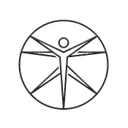Why Respirator Training Is Essential in the Workplace
Luke Curtis May 2, 2023
A respirator is a piece of personal protective equipment (PPE) designed to protect workers from inhaling harmful airborne particles or gases. It is used in various industries, including construction, manufacturing, and healthcare.
However, simply wearing a respirator is not enough; proper training is essential to ensure that workers use them correctly and safely.
The sections below explore why respirator training is essential in the workplace and how it can protect workers from respiratory hazards.
Identifying Respiratory Hazards
The first step in respirator training is to identify the respiratory hazards present in the workplace. This can include dust, fumes, gases, and vapors.
Some of these hazards are visible, such as smoke or dust, while others are invisible, such as carbon monoxide or asbestos fibers. Identifying these hazards is essential to select the appropriate respirator and filters for the job.
Selecting the Right Respirator
Selecting the right respirator depends on several factors, including the type of hazard, the concentration of the hazard, and the work environment. There are two main respirators: air-purifying respirators and atmosphere-supplying respirators.
Air-purifying respirators use filters to remove particles or gases from the air while atmosphere-supplying respirators provide clean air from an external source. The selection of the right respirator and filters is crucial to ensure the worker's safety and comfort.
Fit Testing and Seal Checking
Once the appropriate respirator has been selected, it is essential to ensure that it fits the worker's face correctly. A poorly fitting respirator can render it ineffective and expose the worker to respiratory hazards.
Fit testing and seal checking are techniques used to ensure that it forms a tight seal with the worker's face.
Fit testing involves using specialized equipment to measure the seal's effectiveness, while seal checking is a simple technique that workers can perform themselves to ensure that the respirator is properly fitted.
Proper Use and Maintenance
Respirator training should also cover proper use and maintenance of the respirator. Workers should be trained on how to put on and take off the respirator correctly, how to adjust the straps, and how to perform seal checks before each use.
Workers should be taught how to clean and maintain the respirator to ensure that it continues to function correctly.
Hazards of Improper Respirator Use
The consequences of improper respirator use can be severe. Inhaling respiratory hazards can cause a variety of health problems, including respiratory irritation, lung damage, and even death.
A poorly fitting respirator can expose the worker to hazardous airborne particles or gases, rendering the respirator ineffective. A dirty or poorly maintained respirator can harbor bacteria and other pathogens, increasing the risk of respiratory infections.
Employer Responsibility
The provision of a secure workplace for employees is the responsibility of the employer, including providing the appropriate PPE and training. Respirator training is not only a legal requirement; it is also an ethical responsibility.
Employers who fail to provide adequate respirator training can face legal consequences and damage to their reputation.
The Importance of Refresher Training
Respirator training is not a one-time event. Refresher training should be provided regularly to ensure that workers remain up-to-date on best practices and any changes in workplace hazards or respirator use.
Refresher training should also be provided if a worker experiences significant weight loss or gain or undergoes facial surgery that may affect the fit of the respirator. Regular refresher training can help prevent accidents, injuries, and illnesses in the workplace.
Conclusion
Employers must provide thorough respirator training to ensure their workers' safety and well-being.
If this is not done, both the employee and the business risk suffering serious repercussions. Investing in proper respirator training is an investment in workplace safety and employee health.
Postured Ergonomics is San Diego's top-rated ergonomic and health and safety company. Our board-certified ergonomist is ready to help design solutions that put your health and productivity first.
We offer professional respirator training, assessments, and custom desks and workstations to meet your unique needs. Contact us now to schedule your professional respirator training in San Diego and take the first step towards a healthier, more productive workplace!

